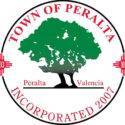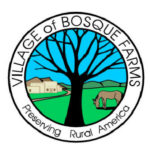Hello Valencia County! It’s me again, Marisol Olivas, reporting from the Valencia County Extension Office.

Marisol Olivas
This summer, I have had the wonderful opportunity to work as a summer intern for the Extension Office. I have been overseeing and contributing to the development of the 4-H program. Part of this internship involves writing articles for the Valencia County News-Bulletin. In my opinion, this has been the hardest part of the job as I always contemplate the topic to write about.
I have decided for this edition to continue to write about my Study Abroad Ireland experience. I hope you enjoy this article that features my favorite part of the trip: touring a Water Buffalo Farm.
The majestical creature of the water buffalo originated in Asia. I had never seen a water buffalo before and thought to myself, “What in the world is a water buffalo herd doing here in Ireland, of all places?” The last place I thought a water buffalo would reside would be here. It was absolutely crazy, but it all made sense.
Water buffalo love water, and since it rains nearly every day in Ireland, this climate makes it the perfect location for water buffalo to live and thrive.
The farm that I toured in Ireland was called the Macroom Buffalo Farm. This farm was started back in 2009 when the owner, Johnny, imported domesticated Asian River Buffalo from Italy. This farm currently has 200 water buffalo grazing on 162 acres of green pasture.
The water buffalo reminded me of Brangus cattle that had big curling horns. The water buffalo were nosy creatures and were very fascinated to meet tourists.
This whole time while I was looking at the water buffalos out in the pasture, I thought to myself, “What on earth are water buffalos used for?” Come to find out, water buffalo can be used for multi-purposes. They can be used for the consumption of meat, processing and consuming the milk, and using their skull and horns for decorations and instruments.
The Macroom Buffalo Farm primarily uses their water buffalos for harvesting and processing the milk into various cheeses. I was able to witness the full circle of this agricultural product. I was able to see the water buffalo out in the pastures grazing, and how the farmers walk the buffalo from the pasture to the milking parlor. I was able to see how they harvest the milk and learned how the milk is then turned into their award-winning cheeses.
The Macroom Buffalo Farm has a separate enterprise called the Macroom Buffalo Cheese Products Ltd., where the fresh milk goes to be processed into soft cheeses and then packaged. These soft cheeses include a variety of mozzarella, Greek-style cheese, buffaloumi, ricotta and bocconcini. Let me tell you, these cheeses tasted absolutely amazing!
One cheese, in particular, that stood out on my taste buds was a cheese called the buffaloumi. This cheese was able to be grilled, and when you chew it the cheese squeaked in your mouth. There is such a high demand for buffalo cheese in Ireland that the Macroom Buffalo Farm cannot produce enough of it to meet the demand.
I found it fascinating how nutritious buffalo milk is compared to cow milk. Buffalo milk contains two times more fat than cow milk at a content of 7.5 percent fat. Buffalo milk also contains 4.5 percent protein, while cow milk contains 3.4 percent protein. The fat content in the buffalo milk makes it easier to be turned into cheese.
The Macroom Buffalo Farm has a great operation going in Ireland with tourism, a cheese plant and a herd of water buffalo. I learned so much from the tour and learned something new about a different agricultural species.
I have also found that the popularity of the water buffalo is becoming more common in the United States as there are water buffalo herds in the states of Colorado, Vermont and North Carolina. I feel that once people taste water buffalo cheese in the U.S. this will be a new product that consumers will want to add to their everyday diet.
Program announcements
To register for an upcoming program, call the Valencia County Cooperative Extension Service at 505-565-3002. For more information, visit valenciaextension.nmsu.edu.
- Ready, Set, GROW! Free gardening classes are being offered virtually, please visit the link for more information at valenciaextension.nmsu.edu.
If you are an individual with a disability who requires auxiliary aid or service to participate in a program, please contact the Valencia County Cooperative Extension Service Office at 505-565-3002 two weeks in advance of the event.















